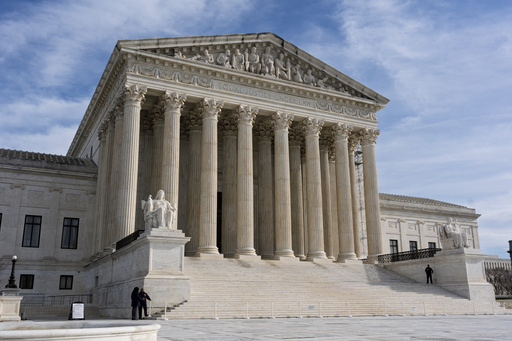WASHINGTON — In a significant setback for Holocaust survivors and their descendants, the Supreme Court on Friday delivered a unanimous decision regarding a lengthy legal battle aimed at securing compensation from Hungary for properties seized during World War II.
The justices dismissed an appeals court’s earlier ruling that had permitted the lawsuit to proceed, despite existing federal legislation that generally offers protection to sovereign nations like Hungary from being sued in U.S. courts.
The high court listened to arguments in December concerning Hungary’s request to terminate the lawsuit, which was initiated in 2010 by survivors, most of whom are now in their nineties, along with their heirs. Many of these individuals endured the horrors of being sent to Auschwitz during the German occupation of Poland.
The appeals court had determined that the survivors met an exception outlined in the Foreign Sovereign Immunities Act, which allows legal actions for “property taken in violation of international law.” To fall under this exception, the plaintiffs needed to establish a commercial connection between the property and the United States.
The plaintiffs contended that Hungary had previously sold the confiscated property, blended the sale proceeds with its general fund, and utilized the mixed funds to purchase U.S. bonds and military equipment in the 2000s.
Justice Sonia Sotomayor, communicating the court’s opinion, stated that “a commingling theory, without more” is insufficient to meet the standards set by the law.
The court referred the case back to the U.S. Court of Appeals for the District of Columbia Circuit, leaving the future of the lawsuit uncertain.
This case has previously reached the Supreme Court; in 2021, the justices ruled in favor of Germany in a different multimillion-dollar case revolving around a collection of religious artifacts known as the Guelph Treasure. This ruling made it more challenging for certain lawsuits regarding claims of property taken from Jews during the Nazi regime to be heard in U.S. courts.
When the Supreme Court considered Hungary’s case concurrently, they sent it back to the D.C. appeals court following the precedent set by the decision involving Germany.
Despite having heard the case three times, the appeals court declined to dismiss all claims. The survivors aimed to establish a class-action lawsuit against Hungary and its railway system, intended to represent all Hungarian Holocaust survivors and the families of Holocaust victims. This railway was instrumental during the genocide, facilitating the transportation of over 400,000 Hungarian Jews to Auschwitz within a mere two months during 1944.
